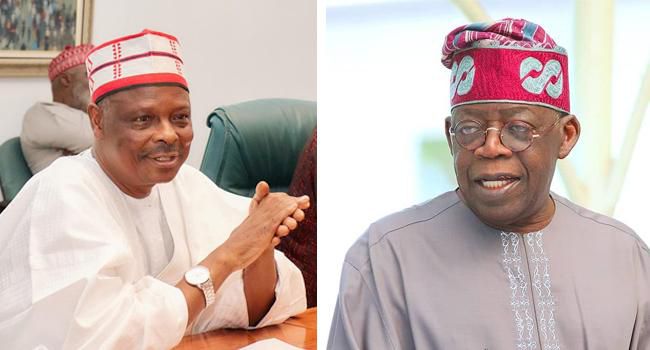Presidency lists projects in North, rubbishes Kwankwaso's claim of neglect by Tinubu

```html Presidency Counters Kwankwaso's Allegations of Northern Neglect, Highlights Development Projects
The Nigerian Presidency has vehemently refuted claims made by former Kano State Governor, Senator Rabiu Kwankwaso, alleging that President Bola Tinubu's administration is neglecting the Northern region in favor of developmental projects in the South. The rebuttal comes amidst ongoing debates about equitable resource allocation across the country.
Presidential Aide Defends Tinubu's Record
Sunday Dare, the President's Special Adviser on Media and Communication, issued a statement on Friday, July 25, 2025, dismissing Kwankwaso's assertions as factually inaccurate. Dare's statement, released via his X (formerly Twitter) account, directly addresses Kwankwaso's remarks made at the Kano State Stakeholders’ Dialogue on the 2025 Constitutional Amendment, where the former governor accused the Federal Government of disproportionately allocating national resources to the Southern region.
Kwankwaso, a prominent political figure and the New Nigeria Peoples Party (NNPP) presidential candidate in the 2023 elections, stated that his information suggested a significant imbalance in the allocation of the national budget, favoring developmental projects in the South. "Let me advise the Federal Government on the distribution of federal resources. From the information available to us, it’s like most of the national budget is now tilting in one direction in this country," Kwankwaso stated.
Detailed List of Northern Projects Released
In response to these claims, Dare presented a comprehensive list of over 40 cross-sectoral programs and projects located in the North, which he asserts were initiated or sustained by the current administration within its first two years. These projects span various sectors, including infrastructure, agriculture, healthcare, energy, and transportation.
Road Infrastructure: Dare highlighted several road projects, including the ongoing Abuja–Kaduna–Zaria–Kano expressway, the Sokoto–Badagry expressway, and the Sokoto–Zamfara–Katsina route. Reconstruction efforts on strategic corridors such as the Dikwa–Gamboru–Ngala route in Borno State were also mentioned. Agriculture: Key interventions cited include the $158.15 million Value Chain North (VCN) programme covering nine states, the Kolmani Integrated Development Project in Bauchi and Gombe, and the World Bank–funded ACReSAL climate resilience initiative. The Kano River Project, commissioned in 2023, was also emphasized as a large-scale irrigation development. Healthcare: According to Dare, over a dozen health institutions have been revitalized or expanded, including Ahmadu Bello University Teaching Hospital in Zaria, Jos University Teaching Hospital, and more than 1,000 primary health centres across the region. Energy: The Ajaokuta–Kaduna–Kano gas pipeline (614 km) and the Gwagwalada Power Plant were highlighted as projects positioning the North as a key energy hub. Solar and renewable energy efforts in Kaduna were also noted. Transportation: Ongoing Kaduna–Kano and Kano–Maradi rail projects, as well as the N100 billion budgeted for the Kaduna Light Rail system, were cited as evidence of the administration’s investment in rail transportation. The rehabilitation of Abuja’s metro line was also mentioned.
Expert Analysis: A History of Regional Development Debates
Dr. Fatima Hassan, a political analyst specializing in Nigerian regional development, commented on the situation, stating, "Debates about equitable resource distribution between the North and South are deeply rooted in Nigeria's history. Accusations of neglect often stem from perceived disparities in infrastructure development, access to opportunities, and the impact of government policies. While the Presidency has provided a list of projects, the key will be ensuring these projects are effectively implemented and benefit the local communities."
Historical Context: Echoes of Past Grievances
The current exchange reflects a long-standing narrative in Nigerian politics, where regional interests and perceived marginalization often fuel political discourse. Historically, various administrations have faced similar accusations, highlighting the sensitivity surrounding resource allocation and development priorities. The Niger Delta region, for example, has consistently raised concerns about environmental degradation and inadequate investment despite its significant contribution to the nation's oil revenue.
Moving Forward: Ensuring Equitable Development
Professor Adebayo Olukoshi, a research professor at the Nigerian Institute of International Affairs, emphasizes the importance of transparency and inclusive development strategies. "For true national unity, it's crucial for the government to adopt a transparent approach in resource allocation and development planning. This includes engaging with stakeholders from all regions, addressing specific needs, and ensuring that projects are designed to promote sustainable and inclusive growth," Olukoshi stated. "Ultimately, the perception of neglect can only be addressed through tangible improvements in the lives of ordinary citizens across all regions of Nigeria."
The Presidency's detailed response aims to counter the narrative of Northern neglect and demonstrate the Tinubu administration's commitment to equitable development across the country. However, the effectiveness of these projects and their impact on the lives of Northern Nigerians will ultimately determine whether the perception of regional imbalance can be effectively addressed. ```
Originally sourced from: pulse Ng
